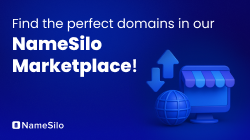If offline was half as easy as you suggest in your opening post, shops wouldn't be closing at the rate they are!
One of the big issues with offline is that the system is "rigged" in favour of the landlords i.e. they will soak up (most of) the profit by virtue of the price you're paying every month in rent to occupy the location. This point was well made a few weeks ago in a "Business Boomers" program on the BBC
http://www.bbc.co.uk/programmes/b040v3ld where it was clear that, even though selling coffee is on the surface an extremely profitable business, when you take rents into account suddenly the numbers look much, much less rosy - and the rent aspect alone is enough to flip the business in question into the red. If you set up a more profitable business, they just claw back more in rent until you're almost back at square one again.
By contrast, a domain name is a one-time expense that has the
potential to improve the position of an online business. It's not a silver bullet that negates the need for any other sort of effort, but a strong generic can make everything else that little bit easier, as the business looks more credible, more established than its competitors and blah blah blah i.e. all the good stuff that comes with a strong domain name. (No point in rehashing the list, we all know it by heart by now.)
Sure, it may cost a few hundred, a few thousand or even a few tens of thousands of pounds - but after that the benefits accrue to the online business "forever" at no additional cost.
There are some businesses - many, in fact, if we're talking at a local level - that will benefit very little from being online. And having the singiest and danciest site in the world will make very little difference. All they need/want is a simple website so that if somebody Googles them, they show up (and the basics are there such as opening hours, contact details etc.) For them, buying a premium name is as wasteful as building a very snazzy site.
But that doesn't take away from the fact that for other businesses, online can be an important or even crucial part of their business (or, indeed their whole business). And there, a one-time investment in an appropriate domain name may be well worth making for what is effectively an "ongoing return".
So unless you're talking about a scenario where the business is just renting the domain name, it's not comparable to any offline situation (such as renting a particular location) since one is a one-time expense, and the other is a never-ending one. Buying that generic domain effectively turns the business into the "landlord".


















